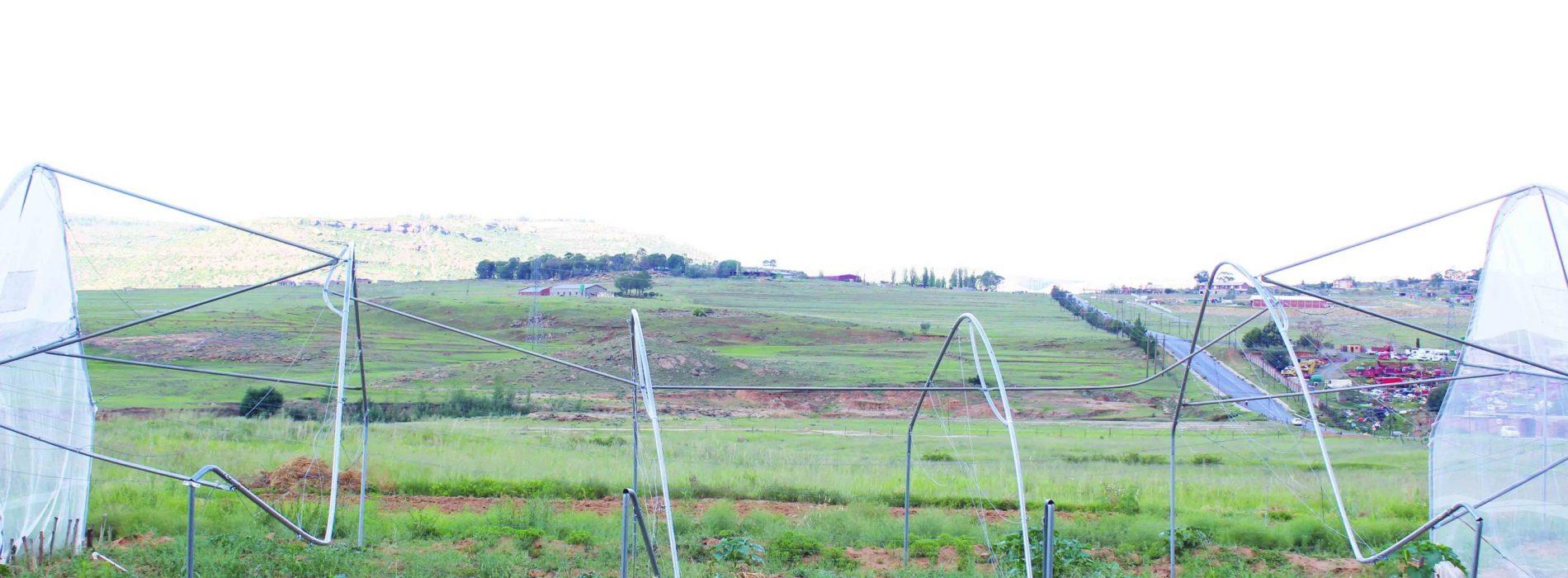Africa-Press – Lesotho. Seven years after becoming a beneficiary of the Enhanced Integrated Framework (EIF) greenhouse, ’Mathabo Motoko is still going strong. The greenhouse was given to her in 2015 as part of the countrywide agricultural enhancement programme by the Ministry of Trade.
Motoko produces cash crops like cabbage, spinach, tomato, lettuce, bell peppers and herbs such as parsley, basil and thyme. Before EIF, like many other Basotho producers, Motoko used to produce in the open due to lack of money for a greenhouse, leaving her produce vulnerable to unfavourable weather conditions.
A greenhouse can cost as much as M150 000, an amount tens of thousands of salaried people cannot afford in Lesotho. Most Basotho are unbanked and do not qualify for bank loans, especially because for a long time local commercial banks regarded agriculture a high risk investment.
Since Motoko started using the greenhouse, her produce has found its way to restaurant dining tables and vegetable shelves in local retail stores. “Access to the market is no longer a major challenge like it used to be,” Motoko said.
“All my life I have never been employed, I have always had a passion for farming. Even though my plot was not very big I would always produce vegetables and end up selling to my fellow villagers,” she said.
Farming has always been a source of livelihood for Motoko and her five family members. Faced with climate change induced problems in 2014, Motoko decided to try her luck and applied to the Ministry of Trade for a greenhouse.
“In November 2014, my request was successful and a greenhouse was installed at home in Ha-Abia, Maseru.
This marked the beginning of improved quantity and quality production for me,” she said. She said that focusing solely on vegetable production has assisted her to take care of the greenhouse.
“Some no longer have these nets for various reasons but for some it is simply because they had other jobs and only focused on farming during the weekends,” Motoko said.
Though Motoko has managed to make it this far, she reckons the journey ahead is still a long one. One day she would like to have farming technology that will allow her to produce all year round despite weather changes.
“Even though I produce in a greenhouse the impact of climate conditions is still significant resulting in reduced production.
”
Sometimes the sun is too hot, winters are harsh and drought terrible despite frequent irrigation.
“Owning one of those technologies whereby temperatures can be controlled no matter the time of the year is a dream I am working towards,” Motoko said.
Another greenhouse farmer who has grown from strength to strength is Makhala Borotho from Marabeng in Berea. Borotho’s proposal was successful in 2015 and she also received an 8×15 metre greenhouse as well as a 16×18 shade net.
Borotho was already a vegetable farmer who had persevered through difficult climatic conditions. “Soon after the erection of the net, a bad hailstorm destroyed it. Today you cannot even tell that I once had a shade net. ”
“The greenhouse has also seen better days, it has started to deteriorate,” she said.
However, Borotho was able to get assistance with more greenhouses after the Ministry of Agriculture’s Smallholder Agricultural Development Project (SADP) was impressed by her commitment to farming.
“My goal is to become the top vegetable producer in the country using the latest farming technology that will enable all year round production,” she said.
At her vegetable farm in Marabeng, Borotho is producing chilli, okra, spinach, peppers and cabbage. Borotho employs two permanent employees and, depending on the time of the season, she employs about 10 seasonal employees.
“Farming is not easy but it is very fulfilling. Contributing to families’ health through food production is a blessing.
It really needs patience and commitment as the challenges can really be daunting,” she said. Finding a market for her produce hasn’t been much of a problem for Borotho.
“I sell my produce to informal traders, restaurants and retail stores. However, there is a challenge when it comes to meeting the demand all year round.
Contributing to this challenge is also the fact that when we have good rains most people produce the same vegetables forcing producers to sell at a lower price.
”
According to the Public Relations Officer of the Trade Ministry, Lihaelo Nkaota, 115 greenhouses and shade nets were distributed to individuals and associations in Maseru, Leribe, Berea and Mafeteng between 2014 and 2015.
The greenhouses and shade nets were made possible through EIF. Out of the 115 greenhouses and shade, 92 are still operational. “We unfortunately had greenhouses that were damaged by the wind, while some that were given to associations ended up being neglected,” Nkaota said.
She added that many associations performed poorly due to internal disputes and lack of a sense of ownership of the project. “Through inspections, especially in the wake of the Covid-19 pandemic, we found out that getting inputs for most farmers was a challenge due to restricted movement,” she said.
It is for this reason that the ministry extended a helping hand and sponsored the selected farmers with seeds and pesticides. “As a result, most were able to benefit earlier this year when certain fresh produce like tomatoes, green beans and peppers importation were temporarily banned,” she said.
The performance of most of the beneficiaries “is pleasing”, said Nkaota. She said the ministry continues to work on proposals from people seeking assistance in the farming industry, which has been classified as one of the country’s key sectors.
EIF is a partnership of 51 countries, 24 donors and eight partner agencies. It works closely with governments, development organisations and the civil society to assist least developed countries use trade as an engine for development and poverty reduction.
EIF works with partner countries to harness trade for economic growth, poverty reduction and sustainable development. Its programmes are tailored to ensure domestic actions are taken to make trade work for economic prosperity, poverty reduction, food security, stability and peace.
For More News And Analysis About Lesotho Follow Africa-Press






